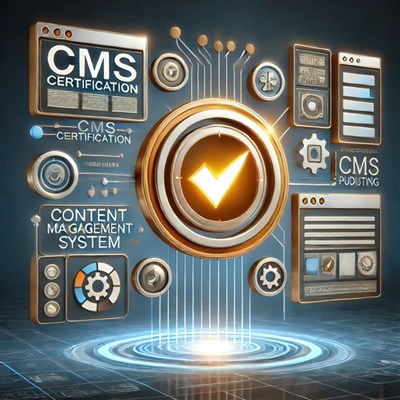
In today's data-driven world, organizations rely heavily on analytics to drive decisions and improve processes. As a result, professionals equipped with data visualization and analysis skills are in high demand. Microsoft Power BI, a powerful business analytics tool, enables users to transform raw data into insightful reports and dashboards. Pursuing a Microsoft Power BI course can equip you with a range of essential skills that will not only enhance your employability but also empower you to make data-driven decisions effectively. In this blog, we will explore the top skills you will gain from a Microsoft Power BI course.
Skills You Will Gain from a Microsoft Power BI Course
1. Understanding Data Modeling
One of the fundamental skills taught in a Power BI course is data modeling. This involves organizing and structuring data to make it more usable for analysis. You'll learn how to:
- Create Relationships: Establish connections between different data tables, enabling comprehensive analysis across various data sets.
- Build Logical Data Models: Develop a clear understanding of the business context and how data relates to the business processes.
- Normalize Data: Learn the principles of normalization to reduce redundancy and improve data integrity.
Understanding data modeling is crucial as it lays the foundation for effective data visualization and analysis. Without a solid data model, reports and dashboards may be misleading or incomplete.
2. Data Transformation and Cleaning
Raw data is often messy and unstructured. Power BI provides powerful tools for data transformation, which is essential for preparing data for analysis. In a Power BI course, you will learn to:
- Use Power Query Editor: Gain proficiency in using the Power Query Editor to import, transform, and clean data from various sources.
- Apply Transformations: Learn how to perform data transformations such as filtering, merging, and pivoting data to derive meaningful insights.
- Handle Missing Data: Understand techniques to identify and address missing values to ensure data accuracy.
Effective data cleaning and transformation are vital for ensuring the reliability of your analyses and reports.
3. Data Visualization Techniques
Data visualization is at the heart of Power BI, and mastering this skill is crucial for effective communication of insights. In a Microsoft Power BI course, you will learn:
- Creating Interactive Reports: Discover how to create visually appealing and interactive reports that engage stakeholders and facilitate decision-making.
- Using Visualizations Effectively: Explore various types of visualizations available in Power BI, including charts, graphs, maps, and tables, and understand when to use each type.
- Customizing Visuals: Learn how to customize visualizations to suit your audience, including changing colors, labels, and styles to enhance clarity.
Strong data visualization skills allow you to present complex data in a digestible format, making it easier for stakeholders to understand insights at a glance.
4. Dashboard Development
Dashboards provide a high-level overview of key metrics and performance indicators. A Power BI course will teach you how to create effective dashboards by:
- Identifying Key Performance Indicators (KPIs): Understand how to select and display KPIs that align with business objectives.
- Designing User-Friendly Dashboards: Learn the principles of good dashboard design, ensuring that dashboards are intuitive and easy to navigate.
- Integrating Real-Time Data: Discover how to connect to real-time data sources to keep your dashboards updated and relevant.
Proficient dashboard development enables you to monitor performance effectively and helps stakeholders make informed decisions quickly.
5. DAX (Data Analysis Expressions) Mastery
DAX is a powerful formula language used in Power BI for data manipulation and calculations. In your Power BI course, you will learn to:
- Write DAX Formulas: Gain proficiency in writing DAX expressions to perform complex calculations and aggregations on your data.
- Create Measures and Calculated Columns: Learn how to create measures and calculated columns that allow for dynamic analysis of your data.
- Use Time Intelligence Functions: Understand time-based calculations, enabling you to analyze trends over different time periods.
Mastering DAX significantly enhances your ability to derive insights from data, allowing for more sophisticated analysis and reporting.
6. Data Connectivity
Power BI can connect to a wide range of data sources, from cloud services to local databases. A Microsoft Power BI course will help you:
- Connect to Different Data Sources: Learn how to connect Power BI to various data sources, such as Excel, SQL Server, SharePoint, and cloud services like Azure and Salesforce.
- Import and Refresh Data: Understand the processes for importing data into Power BI and setting up automatic data refreshes to keep your reports up to date.
- Optimize Data Queries: Discover best practices for optimizing data queries to improve performance and load times.
Knowing how to connect and manage data sources is essential for ensuring that your reports and dashboards reflect the most current data.
7. Sharing and Collaboration
In a business environment, collaboration and sharing insights with team members are vital. Through a Power BI course, you will learn:
- Publishing Reports: Discover how to publish reports and dashboards to the Power BI service for easy access and sharing.
- Collaborative Features: Understand the collaborative features available in Power BI, such as comments, annotations, and the ability to share reports securely with team members.
- Managing Permissions: Learn how to manage user permissions to control who can view or edit your reports and dashboards.
Effective sharing and collaboration capabilities empower teams to work together on data-driven projects and foster a culture of transparency.
8. Advanced Analytics Capabilities
Power BI offers advanced analytics features that can significantly enhance your analytical capabilities. In your course, you may explore:
- Integration with R and Python: Learn how to integrate R and Python scripts for advanced data analytics and visualization.
- Predictive Analytics: Understand how to use Power BI's built-in features for predictive analytics to forecast trends and outcomes.
- Natural Language Querying: Explore how to use natural language queries to allow users to interact with data using everyday language, making analytics accessible to non-technical users.
Gaining skills in advanced analytics positions you as a valuable asset in your organization, capable of driving data-driven decisions.
9. Understanding Business Intelligence Concepts
A solid understanding of business intelligence (BI) concepts is essential for leveraging Power BI effectively. Your course will cover:
- BI Principles: Learn the fundamental principles of business intelligence, including data warehousing, ETL (Extract, Transform, Load), and data governance.
- Analytics Lifecycle: Understand the analytics lifecycle, from data collection and preparation to analysis and visualization.
- Data-Driven Culture: Discover the importance of fostering a data-driven culture within organizations and how to advocate for BI initiatives.
A foundational knowledge of BI concepts enables you to apply Power BI skills in a strategic context, enhancing your impact on business decision-making.
10. Career Advancement Opportunities
Finally, one of the most significant benefits of completing a Microsoft Power BI course is the career advancement opportunities it opens up. With the skills acquired, you can:
- Pursue Roles in Data Analysis: Transition into roles such as data analyst, business analyst, or BI developer, where your skills in data visualization and reporting will be highly valued.
- Enhance Your Current Role: If you're already in a data-related role, Power BI skills can enhance your effectiveness and increase your value within your organization.
- Earn Higher Salaries: Professionals with Power BI skills often command higher salaries due to the high demand for data-driven decision-makers.
In a competitive job market, having a Microsoft Power BI certification can set you apart from other candidates and demonstrate your commitment to professional development.
Conclusion
In summary, a Microsoft Power BI course equips you with a diverse set of skills that are invaluable in today’s data-centric job market. From data modeling and visualization techniques to mastering DAX and advanced analytics, these skills empower you to transform raw data into actionable insights. Additionally, by earning a Microsoft Power BI certification, you position yourself for career advancement and increased earning potential. As organizations continue to prioritize data-driven decision-making, the demand for professionals skilled in tools like Power BI will only grow, making now the perfect time to invest in your future through a Power BI course.
Investing in a Microsoft Power BI Course will empower you with the knowledge and skills to transform raw data into meaningful insights. If you're looking to take your data analysis skills to the next level, consider enrolling in a Microsoft Power BI training and certification course at Koenig Solutions, a leading IT training company providing certifications in top technology courses.







COMMENT